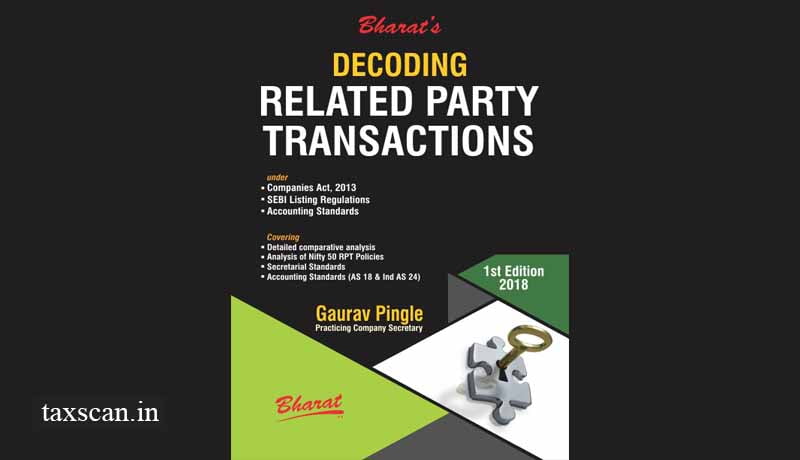Book Review – Decoding Related Party Transactions

Related Party Transactions – Taxscan
Related Party Transactions – Taxscan
Related Party relationships are a normal feature of commerce and business. Enterprises frequently carry on separate parts of their activities through subsidiary companies or Associate companies and acquire interests in other enterprises - for investment purposes or for trading reasons - that are of sufficient proportions for the investing enterprise to be able to control or exercise significant influence on the financial and/or operating decisions of its investee.
Without related party disclosures, there is a general presumption that transactions reflected in financial statements are consummated on an arm’s length basis between independent parties. However, that presumption may not be valid when related party relationships exist because related parties may enter into transactions which unrelated parties would not enter into. Also, transactions between related parties may not be effected at the same terms and conditions as between unrelated parties. Sometimes, no price is charged in Related Party Transactions. In view of the aforesaid, the resulting accounting measures may not represent what they usually would be expected to represent. Thus, a related party relationship could have an effect on the financial position and operating results of the reporting enterprise.
The operating results and financial position of an enterprise may be affected by a related party relationship even if Related Party Transactions do not occur. The mere existence of the relationship may be sufficient to affect the transactions of the reporting enterprise with other parties.
Based on above discussion, it can be said that Related Party Transactions are very critical in the working of a company or group companies. The transactions by a holding company with its subsidiary company or associate company are bound to take place in group of companies. There are 3 important aspects of Related Party Transactions: Governance issues, compliances and disclosures. For such complex issues, the relevant provisions for all companies are: (i) Companies Act, 2013, (ii) SEBI (Listing Obligation and Disclosure Requirement) Regulations, 2015, (iii) Accounting Standards (AS & Ind AS).
Book titled ‘Decoding Related Party Transactions’ is an analysis of the provisions relating to the Related Party Transactions under Companies Act, 2013, SEBI Regulations and Accounting Standards (AS & Ind AS). The book is authored by Gaurav Pingle, Company Secretary, Pune.
The book also covers the following important aspects:
- Relevant extract of the Secretarial Standards relating to the Related Party Transactions,
- Analysis of the Related Party Transactions Policies of Nifty – 50 companies.
In the book, there are two chapters of the comparative studies:
- Comparison of Related Party Transactions provisions under Companies Act, 2013 and SEBI Listing Regulations,
- Comparison of the AS – 18 and Ind AS – 24 that relate to the disclosures under Accounting Standards.
At the end of each chapter, the regulatory updates of the related provisions are presented in chronological order in tabular format. This will help the reader in understanding the evolution of the provision in the respective laws.
For the readers to understand the intention of the provisions and the amendments (if any), the author has given necessary reference of Report submitted by Companies Law Committee, Standing Committee on Finance, JJ Irani Committee Report, Uday Kotak Committee on Corporate Governance.
The book also covers adequate case laws and case studies on each important subject. The book will be useful to Company Secretaries and Compliance Officers of listed entities. It will also be helpful for professionals, such as Company Secretaries, Chartered Accountants, Cost Accountants, Advocates, officials working in law enforcing agencies and students as well.


